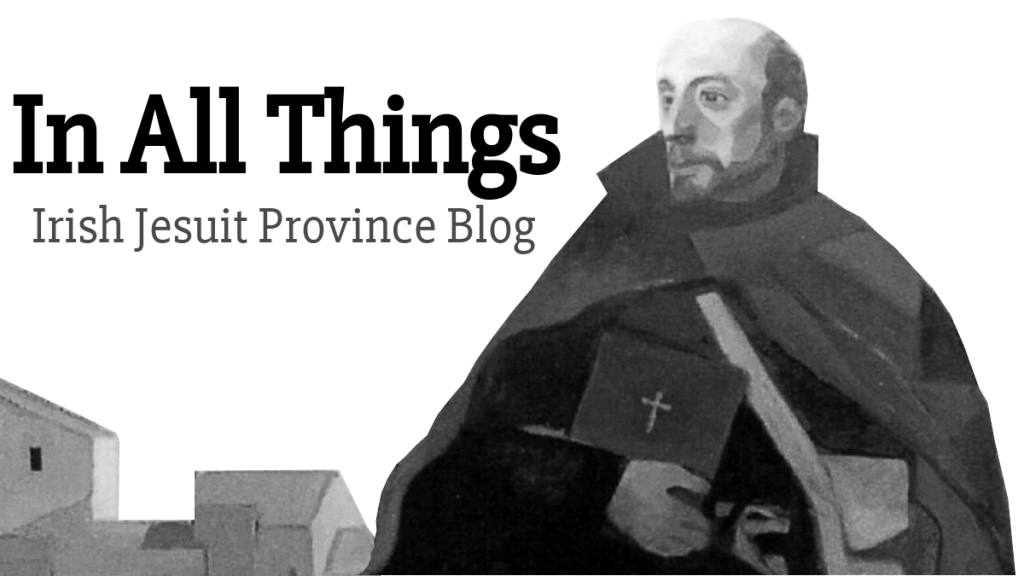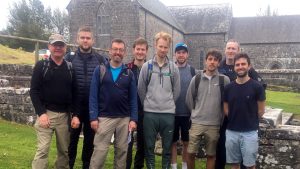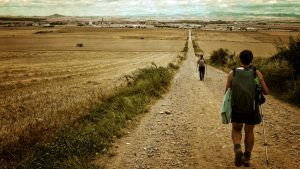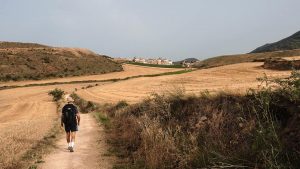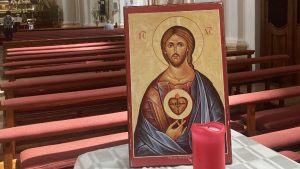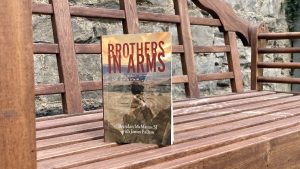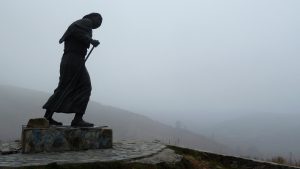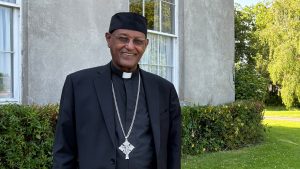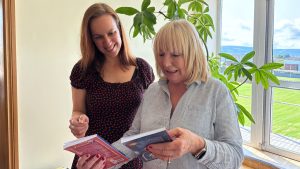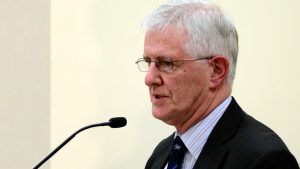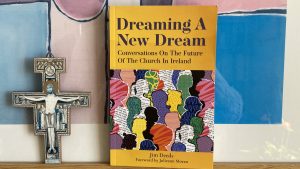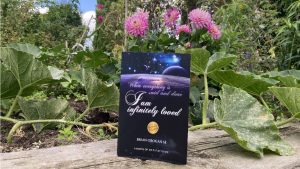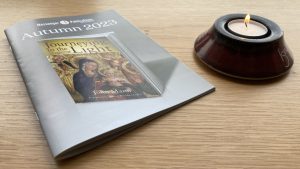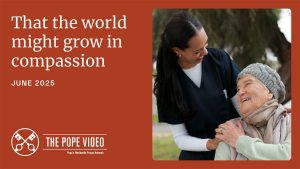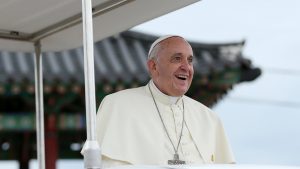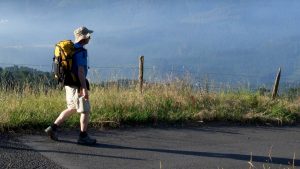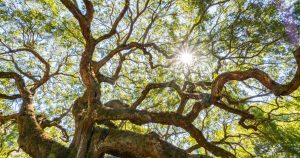Camino a materialistic detox

BRENDAN MCMANUS SJ :: The Camino as a materialistic detox and rediscovering Ignatian simplicity and freedom. Working in the Camino Companions ministry in the Pilgrim Office in Santiago de Compostela this summer I was privileged to hear the stories of scores of pilgrims. This is what they all had in common.
The Camino de Santiago has an interesting paradox at its heart: the more you move away from materialism, egoism, and selfishness, the happier you are with a simple lifestyle, few things, connection with others/compassion, and basic humility. This flies in the face of a contemporary world caught up in appearances, wealth, and individualism. Most find it incredible that people would willingly give up luxury, ease, and self-centredness to live out of a backpack, stay in cheap shared accommodation, and walk miles every day in the Iberian heat.
The Camino is essentially a centuries-old penitential pilgrimage, yet the paradox is that it brings about great happiness and joy (not without cost) and releases people from the tyranny of empty materialism, modern over-thinking, and self-centeredness. Instead, the Camino is a programme of recovery of basic humanity, embodied mindfulness, and compassionate connection to others. And all on a shoestring budget in the bucolic rural north-west Spain!
One way of understanding this process is through a spiritual lens. Ignatius Loyola was a spiritual innovator in the 15th Century who gave up a life of pride and privilege to become a poor pilgrim, discovering something beyond price. How did he manage this huge turnaround? Part of it was that he was forced through a catastrophic injury to let go of his vanity and self-centered chivalry, but also he noticed something curious as an itinerant on the road: there was this undeniable loving presence operating within him (the ‘inner life’) that was gently leading him in a more life-giving and fulfilling direction.
He had a lot of learning to do, especially about letting go of extremes and finding balance. It was his noticing the nature of his moods, however, and increased inner peace would eventually lead him to set up a new religious order, the Jesuits. What was revolutionary at the time was this new way of experiencing God within. Fortunately for us, he wrote up his pilgrim insights into a series of meditations called the Spiritual Exercises, to allow others to follow in his footsteps.
One of those key Exercises for de-centering oneself is called the “Two Standards (or camps)” that contrasts the two basic pulls or desires within us in radically different directions. In a vivid imaginative exercise he presents these in terms of two symbolic armies: one led by Christ, promoting humility, poverty, and service; the other by Satan, with the opposite strategy, promoting pride, riches, and selfishness.
This can be a bit shocking at first, that there is a battle going on within us for our hearts. Obviously, we need things to live but it’s when desires get out of hand, when ‘wants’ become ‘needs’ that causes a problem. The latter is the very essence of advertising: having people associate themselves with material things that appear to offer status and happiness, but ultimately may become a source of false pride. As DeMello puts it in his book Awareness, we can become enslaved by materialism, the trap of allowing ourselves to feel proud of what we process or wear (identifying with things, ‘look at what I have’, quickly becomes “look at me”, me as ‘god’).
This is the antidote that the Camino provides, it’s not about what you have or wear, but rather who you are and how people can help each other. It’s an extraordinary experience of how life could be if we dropped the politics, pretense, and falseness.
Ignatius asks us to choose obviously, but first to notice how we can be easily confused by the two forces that are such a part of modern life. For starters, it is the fact that these ‘things’ are good in themselves and it is often our attitude or ‘attachment’ is the problem.
The seductiveness of the riches/pride option will be familiar to most of us, and how modern consumer culture tries to normalise or promote greed and accumulation as the norm. Christ’s path, one of genuine humility (NB not humiliation) helps us foster virtues that open us to the world and align with God’s will.
Of course, it is challenging to realise that this spiritual battle is happening within us. We have to discern our priorities and make a conscious counter-cultural commitment to live Christian values. Central to the drama is the attractiveness of the person of Christ, as a coherent and utterly selfless individual, who inspires and leads as the quintessential pilgrim, open to the world and other people.
The Camino manages to bring about this transformation fairly organically and naturally. Living life as a pilgrim implies a simplicity that underlines our common humanity in its embodiment, limits and connection to others. It’s not about the clothes you wear, the exterior or superficiality; rather it is a delightful rediscovery of the relief of being oneself, fully inhabiting one’s body, feeling at home in nature, and relating to others in solidarity on the same journey.
Conversations are typically not about who you are, what you have, or your job, but rather go right to the heart of your life project; joys and sorrows, desires and hopes. Paradoxically, this brings real joy in being who you are in all your wonderful, colourful, limited humanity and being able to relate to others in theirs, without any pretense. Typically it restores your faith in humanity, the kindness of strangers, and human solidarity.
Essentially, the Camino reminds us of our mortality and transient nature; life is limited and precious, and it’s a one-way journey. The only time you have is now, there’s no point in compulsively accumulating wealth and hoarding things away. The Camino reminds us that we are pilgrims, only travelling through this world, and that we have to hold things lightly and not identify with them too much. We can’t take them with us where we are going, so we might as well begin divesting ourselves now.
The important thing is waking up to the beauty that is around us, especially in others, and trying to help others as best we can. It means being grateful for the little things, realising that life is a gift and ultimately every ‘thing’ in this world is. The Camino exposes the typical consumerist trap of wanting more, pride and possessions, thinking that life will be great when I get more stuff, more status, more esteem.
The Camino is a vision of how the world could be. It is undoubtedly a special place where magic happens, and miracles take place daily. It is like an experience of the ‘Reign of God’, God’s dream for the world. This is an alternative vision of how the world could be if people ‘lived the Camino spirit’ daily, looked out for each other and realised we’re all on the same journey.
On the trail, there is no need for pretense or hierarchy. All are equal and dressed in common pilgrim clothes, people’s humanity and vulnerability is on full display. The experience of simple living, sharing resources, and helping each other seems to facilitate the process of drawing close to others who are on the same path. What is extraordinary, however, is the natural way that people create community and help each other.
Camino walkers or pilgrims go out of their way to help anyone injured or in trouble. They share what water or food they have left, give directions, and go to great lengths to put someone back on the path, putting others’ needs before their own. On the Camino there is little ‘trivial conversation’ or point scoring, people tend to dive straight into the core issues of who people are (not what you have or do) and why you are walking. Often within minutes people are telling complete strangers their deepest secrets and desires, it is truly humbling and inspiring. As a result, people respond in the same way, with openness and transparency where everybody listens and tries to understand. Compassion and solidarity abound on the Camino.
The challenge is to live this ‘alternative vision’ and pilgrim life back at home of course, surrounded by technology, advertising, media, and cultural pressures. There is real life beyond screens, social media, and technology. Again, a lot of it boils down to this ‘inner work’ of living from our deepest selves, overcoming unhealthy attachments and addictions, and living in real freedom and humility. It is challenging to live the Camino back at home but it is possible with some help and structures – see McManus & Flynn, Living the Camino Back Home, Messenger Pubs. 2024 »
Ignatius Loyola gives us the key to understanding the negative traps (over-identifying with things, greed & false pride) and how to live in genuine freedom (freedom from things, being your ‘pilgrim’ self, open to the needs of others.)
The real paradox is living the tension inherent in our shared humanity: we are incredibly gifted but susceptible to ‘addictions’, and need spiritual guidance to keep free and on the road. It is difficult initially, the detox and the detachment, but it grows on you and the payoff is enormous in terms of reducing stress, anxiety, and worry. In other words, it’s an Ignatian shortcut to leading a more fulfilled life, living in the ‘real’ and the resultant happiness!


